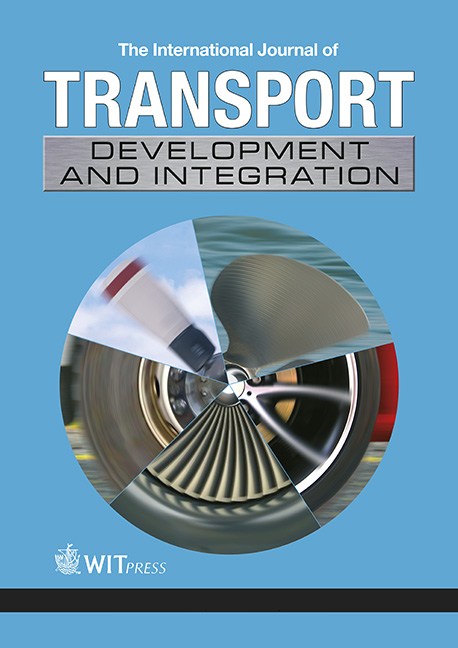Urban land use policies for efficient autonomous on-demand transportation – A case study on the Japanese Island of Izu Oshima
Price
Free (open access)
Volume
Volume 3 (2019), Issue 2
Pages
13
Page Range
152 - 165
Paper DOI
10.2495/TDI-V3-N2-152-165
Copyright
WIT Press
Author(s)
Lukas D. Pöhler, Yasushi Asami & Takashi Oguchi
Abstract
This paper introduces an agent-based simulation approach to model current and future spatial mobility demand based on activity profiles under different urban land use policies. Further, mobility provision for young and elderly people through a system consisting of shared, on-demand autonomous vehicles (AVs) is proposed and evaluated. We use a generalized optimization approach including investment, driving, and social costs to determine the optimal number of vehicles. Future demographics of the population are simulated through a cohort analysis where migration based on historical data is taken into account. The method is applied to the case of Izu Oshima, a Japanese island strongly affected by demographic change and comprising of a high number of immobile citizens. The promotion of settlement in vacant houses in different areas of Izu Oshima through urban land use policies is simulated and compared with respect to urban sprawl, spatial mobility demand, and the cost of mobility provision. The results show that land use policies have a big potential to lower the cost of transportation. We further show that their effect is stronger for shared electric AVs than for conventional transportation systems.
Keywords
Agent-based modelling, Autonomous vehicles, Demand forecasting, Demographic change, Land use planning and Public transportation




